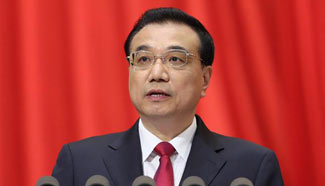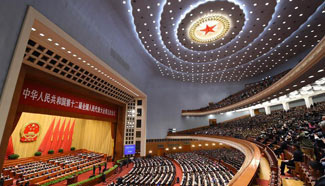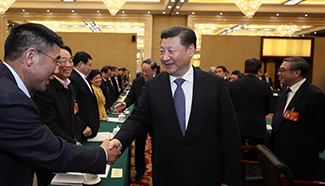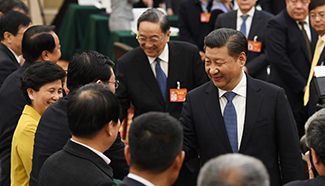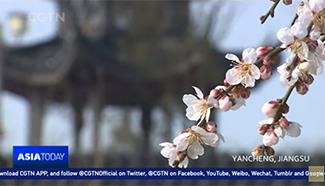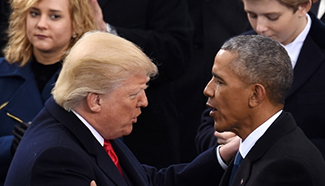BRASILIA, March 5 (Xinhua) -- Growing protectionist tendencies and rising conservative nationalism have raised deep concern in a global scenario with a deterioration of multilateral security mechanisms since World War II, a leading Brazilian analyst said Saturday.
Luiz Fernando Horta, a historian and expert of international relations at the University of Brasilia (UnB), told Xinhua in an interview.
Post-World War II multilateral agreements that underpinned the world order have been undermined since the start of the new century by major Western powers, particularly the United States, said Horta.
"We have been seeing the disintegration of the Bretton Woods since 2001, involving not only the economic system, but also the global security system established after World War II. The United States and other powers began to ignore the (United Nations) Security Council, which was playing a very important role," said the expert.
Horta was referring to the Bretton Woods system of monetary management which established rules for commercial and financial relations between the United States, Canada, Western Europe, Australia and Japan in the mid-20th century.
One clear sign of the unraveling of the established order is the remilitarization of Japan, whose demilitarization after the war reflected the joint efforts of the international community to bolster global security, he said.
"Since Japan openly asserts the possibility of military action, it signals the end of those post-war agreements designed to make the system work," said Horta.
Horta expressed "great concern" about a potential military confrontation around the world, given U.S. President Donald Trump's stated intention to modernize and expand his country's nuclear arsenal.
For the analyst, the idea that the world system has become a multipolar one is highly questionable, as the actions of global players increasingly lack legitimacy.
"To have a multipolar world you need to have two things: on the one hand, poles have the capacity to take actions on the world stage. That is what we have. On the other hand, there must be a broad consensus that the actions taken by these countries are legitimate. We have a very big void here. There is no perception of legitimacy," said Horta.
"I believe this multipolarity is more of a theory than a reality in the world," he added.
The breach between the developed and developing world is a major obstacle on the path to multipolarity, and one that will not be easy to overcome, he said, because economies now striving to "catch up" are encountering many barriers.
The changing global landscape is giving rise to scenarios that would be unimaginable just a few years ago, said Horta, such as China's greater economic opening in contrast to Western powers's protectionist approach.
China today has "relative advantages." This is why free-trade talks no longer interest the Western powers, said the historian.
"We are entering an era of extreme conservatism. Due to the economic crisis, some countries are going to defend themselves with an economic nationalism agenda. I think in coming years we are going to see a decline of the idea of globalization," said Horta.

